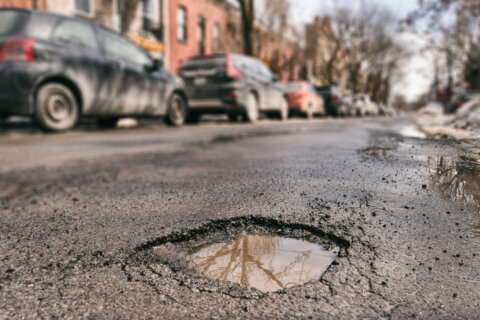As families travel out of town for the holidays, parents may be tempted to use melatonin to help their children adjust for sleep. But D.C.-area doctors say you might want to think twice before doing this.
“I think that screen time has a lot to do with it,” said Dr. Christina Brown, a pediatric physician with Kaiser Permanente in Maryland, when asked why melatonin use is becoming more common among young children and teens.
A new study published in the journal JAMA Pediatrics found that up to 20% of teens use melatonin to help get to sleep. Even more startling was the fact that the same study revealed up to 5% of children who are preschool age also use the product in the U.S.
“Melatonin is the hormone that helps regulate our sleep,” Brown said. “Blue light from screens suppresses that hormone in our bodies.”
“You may put TV on for your kids at the end of the day,” she went on. “Teens may be scrolling through their phone on social media before they go to bed. That is the opposite of what you want to do for your sleep hygiene.”
Brown said a lot of people might use melatonin because they believe it’s natural, and therefore it’s safe. But she warns that melatonin you can get in a bottle over the counter is still a supplement.
“It is not regulated by the Food and Drug Administration in the same way that other medications may be,” Brown said. “When you or your child ingest melatonin, it can vary between 75% to 350% of what you think you’re getting.”
Brown said fun bottles with cute colors and enticing flavors, plus attractive gummies, can also cause smaller children to overdose on this sleep aid.
She said even when traveling this holiday season, you should be wary of increased melatonin use — especially in kids.
“We don’t really know what the long-term risks will be to them,” said Brown. “So I definitely recommend talking to your doctor before using.”
To keep sleep patterns regular and encourage healthier sleep, Brown recommends mimicking the environment your child normally sleeps in. Travel with a sound machine or night light if necessary. And always follow the same nightly ritual, even when traveling.
She also recommends you don’t make special holiday allowances for reading scary stories or watching scary movies.
And most importantly, avoid excessive caffeine.
“This is a dessert time of year — even chocolate can contain caffeine,” said Brown.
She said if sleep issues persist, it could be a sign of a bigger issue like anxiety or depression — or another condition entirely, like sleep apnea, in your child.
If that’s the case, she said you should investigate further with a doctor.








